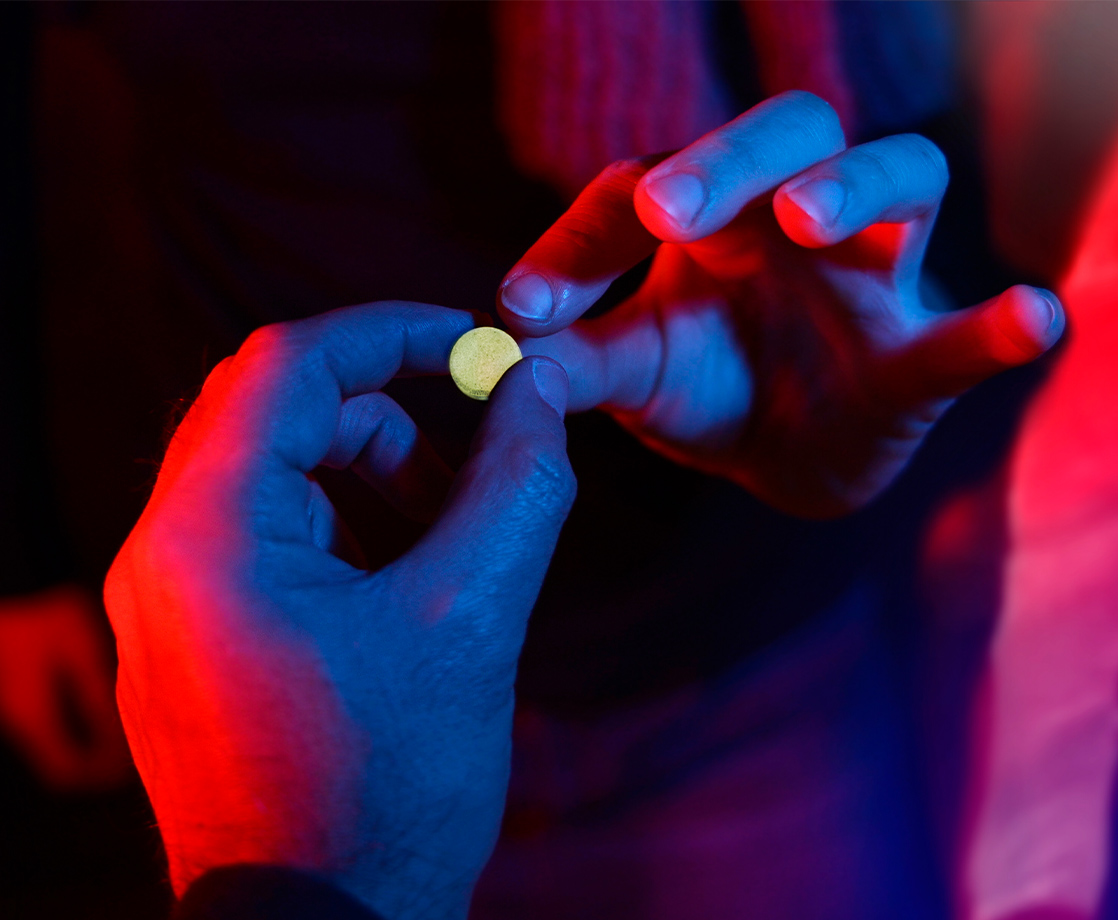A group of neuroscientists, AI specialists, and psychologists at IBM developed a new method for detecting if someone is intoxicated on MDMA — simply by analyzing an individual’s speech patterns.
In a study published last week in Neuropsychopharmacology, researchers could pinpoint, with nearly 90 percent accuracy, whether someone was intoxicated on MDMA, the active ingredient of “molly” or “ecstasy,” based on certain types of words and emotions expressed in short segments of speech. This detection method could discern MDMA use from being dosed on oxytocin, the so-called “love hormone” that produces effects similar to, but still significantly different from, MDMA.
Alright, we can hear you festival goers, ravers, and assisted psychotherapy patients say, how can a machine tell if someone’s rolling balls just by how they talk? Here’s how.
The researchers had 31 subjects — 12 female and 19 male — perform two separate speech tasks four times each, for a total of eight tests for each subject. Each subject received a placebo, two different doses of MDMA (0.75mg/kg and 1.5mg/kg), and oxytocin (20 IU) so the researchers could identify speech pattern differences within subjects as well as among them. The experimental procedure was conducted in a double-blind and randomized manner, meaning neither the subjects nor the researchers administering the drugs/placebo knew what the subjects were actually receiving for each test. (A separate set of researchers kept track of who was administered what, and by whom.)
The first speech task asked the subjects to describe someone who was important to them for 5 minutes. The second task asked subjects to speak freely, as much or as little as they wished, about anything while alone for 5 minutes. All speech was recorded for machine-learning analysis.
Subjects on MDMA showed markedly different speech patterns compared to when they were only on oxytocin or placebo, and the unique speech patterns were more pronounced at higher doses of MDMA. Basically, people on molly used more words relating to intimacy, rapport, and emotion. Furthermore, their speech showed more instances of jitteriness, as well as different vowel pronunciations and richer use of adjectives and nouns.
“These findings contribute to a small but rapidly growing body of literature suggesting that computerized speech analysis methods may present a powerful, non-invasive, and cost-effective way to capture clinically relevant mental states, including those occurring during intoxication,” the researchers concluded. “However, these methods suggest that in the near future, digital phenotyping, including automated speech analysis, could provide reliable, objective information to complement existing methods used to understand human mental states.”
In other words, someday in the foreseeable future, doctors will be able to tell if you’re on MDMA — and possibly other drugs such as weed, alcohol, meth, cocaine, or heroin — simply by recording you talk and running it through a handheld device.
And if doctors can do it, that means cops may be able to do it, too. Australian authorities are currently testing infrared cameras to catch people on MDMA at festivals based on their body-heat signatures alone — no breathalyzers, blood draws, or urine or saliva samples necessary.











